There I was, on a cloudless and sunny Thursday afternoon, looking up at the magnificent Col d'Arp, the first of twenty-five massive climbs, while standing in the backyard of a remodeled AirBnB at the edge of Courmayeur a beautiful Italian town in the beautiful Aosta Valley. I was first to arrive at our rental, dubbed the "American House", which I would eventually share with 3 other Americans, Ramon Bermo, Pat Heine, and Kyle Curtin. I was waiting to receive the keys from our kind Italian host, who was in the process of remodeling our accommodations. Luckily, she completed or at least paused the work while we were staying there.
The views from our backyard and balcony were absolutely spectacular. We were overlooking the entire town of Courmayeur and much of the giant mountains we would be climbing and descending over much of the week provided we made it all the way around the valley and back to our starting location on Courmayeur. The Tor des Geants course circumnavigates the entire Aosta Valley. It spans more than 205 miles and has runners climbing more than 86,000 feet as well as descending the same amount.
The entire gang showed up within the next couple of hours, allowing us time to get to know each other. Everyone but me had been a Tor finisher in one of the previous years. In other words, I was the only "Giant in Training". We spent the next day chilling out and chatting about what lay ahead. We'd spend much of Saturday afternoon getting our bibs and drop bags picked up. The biggest question mark would be the size of the drop bags we were provided by the race. Most of us were worried about being able to get all of our spare gear and nutrition for the week shoved into the duffels we received. Thankfully, I ended up being able to pack all but a couple of items in my bag. I was barely able to close the zipper, but I didn't have to leave any essential items behind. I managed to pack all mandatory gear along with a few optional items into my race pack. The race would start in two waves on Sunday morning, a 10AM wave and a 12PM wave. Thankfully, I was in the first wave along with some of my roomies and my buddies Tobias Sørensen and Vic Yang. In the starting corral, I got to meet a few other fellow Americans, whom I would see on and off throughout the week that followed. And what followed would be both my greatest challenge and most amazing adventure in one.
Day 1
I was as intimidated as I was excited about this race, maybe more afraid than excited, actually, but once the race countdown reached zero, all those nerves went away. I giddily went down the streets of Courmayeur while chatting with my buddy Tobias as well as a couple of new friends I'd already made. As it turned out, I would bump into the same group of 20-30 runners including about half a dozen American and UK runners throughout the race, kind of a small trail family within the larger family of trail runners.
As any family member would, we all kept encouraging and supporting each other through all of the lows that come with a seemingly insurmountable challenge like the Tor. Day 1 was a hot one and it was felt by many of us as we tried to tackle these large mountains without overheating. Some of us were more successful at that than others.While I didn't overheat, my "Achilles heel" or better my actual heel and its tendency to get debilitating blisters reared its ugly head. After just 10 miles, essentially the first descent of many many more to come, I had already developed hotspots in my usual places. Once we reached the first of six life bases, I went to the medical team to ask them to tape my feet to prevent the hotspots from developing into full-blown blisters as they'd had just a couple of months earlier at the Spine Race in the UK.
I had to accept early on that I would have to forget about any goals other than to finish as I needed to manage my foot issues as my highest priority. However, that did not keep me at all from being in awe of the magnificent Italian Alps and the Aosta Valley that we would circumnavigate.
Day 2
I would spend about an hour with the medical team to have my feet re-taped in an effort to keep blisters at bay and another 3 hours trying to sleep. The sleep effort was futile and I would continue into day 2 without sleep.
At this point, my running partner for the early stages Tobias Sorensen had pulled ahead. Instead, I bumped into my Courmayeur roommate Pat Heine, who struggles with extreme nausea and everything that comes with it. He managed to get some sleep, which helped him recover from his stomach issues and continue on. We would run the next 130+ hours together, which is a remarkable feat in itself. Thankful for his company as he kept me from sleepwalking off a mountain pass more than once.
Sleep deprivation and foot issues would be my biggest challenges for the remainder of the race. Cogne life base would be our next life base with a few refugios (mountain huts) in between.
Day 3
40 hours into this adventure Pat and I had teamed up for good with the intention to stick together through this immense challenge, helping each other through various lows. We departed Cogne (life base #2) with the intention to make it to the next life base #3 in Donnas, but only to refuel to tackle the next section rather than actually try to stop for a sleep.
By the time we left Donnas, we had been moving for 54 hours and I had slept less than an hour. The goal was to reach the halfway point of the race, Refugio Coda, and reassess once we got there. Reassess as in, do we try to sleep here or at the next Refugio, if at all.
Day 4
By the time we left Donnas, we had been moving for 54 hours and I had slept less than an hour. The goal was to reach the halfway point of the race, Refugio Coda, and reassess once we got there. Reassess as in, do we try to sleep here or at the next Refugio, if at all.
Day 4
Towards the end of day 3, Pat and I reached Refugio Barma. It was another welcoming Oasis as we'd been traversing big mountains for a while and knew we had a lot more to do before getting to the next life base at Gressoney. We were ready for a break.
We'd climbed only about a 1000' since leaving Refugio Coda, the halfway point of the race, 4.5 miles earlier, but it was now nighttime and I was still operating on just a little over an hour's worth of sleep. I had been told that there was a medical doctor on call at this refugio, so my first course of action was to seek him out. My hotspot had turned into a blister, but thanks to my pre-race foot care (shaving down calluses that made it impossible to lance massive blisters at the Spine Race), he was actually able to lance it and tape it up, again.
In the meantime, I was devouring a plate of Spinach gnocchi I had ordered and paid for. I had learned from previous "giants" that many of the refugios still served other foods and drinks aside from the race food provided, so the first thing I would do at every single Refugio was to ask for a couple of cappuccinos (for Pat and me) as well as any kind of food, usually delicious pies, and any candy bars. Once my blister was taken care of and I had finished the food, I grabbed a cot in one of the rooms in the Refugio. I had hoped for a bunk bed with an actual mattress, but they were all taken. There was also a 60-minute time limit on any sleep here, so I think I managed to get 45 minutes before being woken up to make room for the next runner.
I was in a coma and as I wobbled back into the main area of the Refugio, I noticed it had started to rain, ugh! Pat and I decided to stay a bit longer and I found a spot on the floor and a chair to raise my legs a bit. Any way to rest my body became essential, sleep or no sleep. As the first light approached, Pat and I readied ourselves to get going. As we left the Refugio, I noticed a giant lake just below the Refugio. Arriving here at night, I had no idea this lake even existed.
We pushed on to Gressoney life base as we intended to refuel and rest briefly before moving on to cover the next section between life bases that would be the shortest segment of the race at 34k. I do remember my favorite aid station just past Refugio Barma, at Lago Chiaro, where they were serving freshly cut bread, the usual cheeses and meats along with deep fried dough balls with fruit and grilled chicken along with bottles of wine and beer. I did not partake in all of these goodies, but I got my fill of deliciousness.
Once at Gressoney, I did take the opportunity for a nap on the mats in a climbing gym and it turned out to be the best hour of sleep I got all week. Afterwards, it was time to line up for the medic again and this time I had to wait more than an hour to even be seen. It was a time suck, especially as we were trying to move on to the next life base just 34k away. In any case, foot care was my main concern, if I wanted to complete this adventure, so no point in worrying about lost time.
Pat and I finally moved on and ended up running with Bruno, a seasoned ultrarunner from Palermo who was kind enough to tell us exactly what to expect over the next section before causally dropping us on the next climb. We would bump into him again a couple of times later on in the race. He was a true Italian original.
We'd climbed only about a 1000' since leaving Refugio Coda, the halfway point of the race, 4.5 miles earlier, but it was now nighttime and I was still operating on just a little over an hour's worth of sleep. I had been told that there was a medical doctor on call at this refugio, so my first course of action was to seek him out. My hotspot had turned into a blister, but thanks to my pre-race foot care (shaving down calluses that made it impossible to lance massive blisters at the Spine Race), he was actually able to lance it and tape it up, again.
In the meantime, I was devouring a plate of Spinach gnocchi I had ordered and paid for. I had learned from previous "giants" that many of the refugios still served other foods and drinks aside from the race food provided, so the first thing I would do at every single Refugio was to ask for a couple of cappuccinos (for Pat and me) as well as any kind of food, usually delicious pies, and any candy bars. Once my blister was taken care of and I had finished the food, I grabbed a cot in one of the rooms in the Refugio. I had hoped for a bunk bed with an actual mattress, but they were all taken. There was also a 60-minute time limit on any sleep here, so I think I managed to get 45 minutes before being woken up to make room for the next runner.
I was in a coma and as I wobbled back into the main area of the Refugio, I noticed it had started to rain, ugh! Pat and I decided to stay a bit longer and I found a spot on the floor and a chair to raise my legs a bit. Any way to rest my body became essential, sleep or no sleep. As the first light approached, Pat and I readied ourselves to get going. As we left the Refugio, I noticed a giant lake just below the Refugio. Arriving here at night, I had no idea this lake even existed.
We pushed on to Gressoney life base as we intended to refuel and rest briefly before moving on to cover the next section between life bases that would be the shortest segment of the race at 34k. I do remember my favorite aid station just past Refugio Barma, at Lago Chiaro, where they were serving freshly cut bread, the usual cheeses and meats along with deep fried dough balls with fruit and grilled chicken along with bottles of wine and beer. I did not partake in all of these goodies, but I got my fill of deliciousness.
Once at Gressoney, I did take the opportunity for a nap on the mats in a climbing gym and it turned out to be the best hour of sleep I got all week. Afterwards, it was time to line up for the medic again and this time I had to wait more than an hour to even be seen. It was a time suck, especially as we were trying to move on to the next life base just 34k away. In any case, foot care was my main concern, if I wanted to complete this adventure, so no point in worrying about lost time.
Pat and I finally moved on and ended up running with Bruno, a seasoned ultrarunner from Palermo who was kind enough to tell us exactly what to expect over the next section before causally dropping us on the next climb. We would bump into him again a couple of times later on in the race. He was a true Italian original.
Day 5
We left Gressoney life base and headed into the night, determined to get to the next life base at Valtournenche. I always felt refreshed leaving life base, but eventually, my severe lack of sleep would catch up to me and it became a battle of the will, just one will, one brain, one sleep-deprived brain. It was a battle within. No matter how determined you are to stay awake, if you fail to sleep long enough your body will take what it needs and that usually means falling asleep on your feet. The trick is to do so without harming yourself, especially when climbing up big mountains. Pat and I did make great progress in the early stages of this section.
At this point, my memories become a bit hazy. We managed to make it to the next life base in Valtournenche by evening. Lack of sleep would continue to take its toll on me and my memories of the later stages of this race, but at least my hallucinations were becoming even more vivid and impossible to ignore.
In fact, even though I knew that a big boulder was a boulder and not a camper van, my eyes and brain would not allow me to see a boulder. It was quite the experience that would continue until Saturday morning. In fact, my hallucinations would not stop until a. Full night's sleep after the race’s end.
Day 6
Friday, 10 a.m. was my original goal to finish this massive challenge, 5 days total. But early setbacks had me readjusting this goal very quickly to “finishing at any cost, no matter how long it takes.” This day was marked by the weather. The entire day was veiled in clouds and the occasional rain showers causing temps to feel much colder.
In fact, we had to fashion a rain kilt for Pat using one of the mandatory survival blankets. This thing would not have saved anyone from anything. It literally fell apart just by being wrapped around Pat. Within a couple of hours, it looked more like a Hula skirt than a survival blanket.
Things had become blurry for me as I was still operating on just over 3 hours of sleep, but I vividly recall arriving at Bivacco Rosaire Clermont, seeing a bunch of runners seemingly stacked on top of each other, and leaning to Pat saying “Let’s get some food and get the F out of here”. I wanted to keep moving and make it to the town of Oyace as soon as possible. We had to reach one more life base before the finish, Ollomont, and we had just moved past the 120-hour mark.
We would spend most of the day layered in warm clothes and rain gear. Another favorite memory in this section was reaching the Refugio Champillon after climbing out of Ollomont life base as we were met by the most enthusiastic group of volunteers that manned this aid station, blasting 80s and 90s hip hop from their speakers.
By now it had become routine, I would walk into the Refugio and inquire about cappuccino and any food or desserts. This Refugio did not disappoint in that department either. I ordered two cappuccinos and 2 pieces of delicious apple pie and Pat and I planted ourselves outside enjoying some mild temps before getting more substantial food and refilling our water bottles before heading out and up another climb.
This one was more gradual and by now, I was definitely more excited about the climbs than the descents. The next big milestone would be the (in)famous highlight and much photographed Col Malatrà, which we would not reach until early the next morning.
The obligatory photo at the top shows me both smiling in relief at having just a half marathon left to go to the finish and the dazed and confused expression of having slept barely more than 3 hours for an entire week. In fact, I didn’t really wake up again until the final 3 mile descent into town.
I had run this particular section of trail 3 times before, but all in the reverse direction during my previous 3 UTMB finishes. There are about 8 miles of the trail that overlap in reverse between Tor and UTMB. Until the final 3-mile descent, I had been zombie walking for a few hours, stopping randomly mid trail being confused about where I was and what I was doing. It scared Pat a bit, I think, and was probably the main reason he stuck with me towards the end.
But when a runner passed us at the top of the 3-mile descent, I woke up. I hadn't seen other runners in hours and being passed got both my competitive spirits and my adrenaline going again. I am not getting passed with a 5K to go after having covered 325K already. I started "flying". Well, it felt like it.
A check on Strava after the race brought me back to reality and the realization that one does not run as fast as one thinks at the end of an ultra. Nonetheless, we passed more than 50 runners between the last timing checkpoint and the finish line, which we arrived at after no less than 143 hours. What an adventure, what a challenge, what an experience. I am finally certain I can do hard things. Extreme heat, rain, hail, lightning, blisters, sleep deprivation, 205 miles, 86,000 feet of vertical gain, 86,000 feet of elevation loss (way more painful than the climbing), 150-hour time limit, none of it could keep me from crossing that finish line.
However, when you are struggling during an event like this, it is always a tremendous help to partner up with a fellow runner who may be struggling as well or who is at least moving at your pace, be it for just a few miles or for much much longer as was the case for me and Pat Heine aka @derhaselv. For 120 hours all the way through the finish, Pat put up with me and my "personality". Huge thanks to him for dragging me through my low points and for keeping me upright and moving when I would rather have laid down in a ditch to sleep forever. On Saturday morning around 10AM local time, we finally crossed the finish line of arguably the world's toughest ultra with more than 40 participants ;-)
In fact, we had to fashion a rain kilt for Pat using one of the mandatory survival blankets. This thing would not have saved anyone from anything. It literally fell apart just by being wrapped around Pat. Within a couple of hours, it looked more like a Hula skirt than a survival blanket.
Things had become blurry for me as I was still operating on just over 3 hours of sleep, but I vividly recall arriving at Bivacco Rosaire Clermont, seeing a bunch of runners seemingly stacked on top of each other, and leaning to Pat saying “Let’s get some food and get the F out of here”. I wanted to keep moving and make it to the town of Oyace as soon as possible. We had to reach one more life base before the finish, Ollomont, and we had just moved past the 120-hour mark.
We would spend most of the day layered in warm clothes and rain gear. Another favorite memory in this section was reaching the Refugio Champillon after climbing out of Ollomont life base as we were met by the most enthusiastic group of volunteers that manned this aid station, blasting 80s and 90s hip hop from their speakers.
By now it had become routine, I would walk into the Refugio and inquire about cappuccino and any food or desserts. This Refugio did not disappoint in that department either. I ordered two cappuccinos and 2 pieces of delicious apple pie and Pat and I planted ourselves outside enjoying some mild temps before getting more substantial food and refilling our water bottles before heading out and up another climb.
This one was more gradual and by now, I was definitely more excited about the climbs than the descents. The next big milestone would be the (in)famous highlight and much photographed Col Malatrà, which we would not reach until early the next morning.
Day 7
Friday night featured the infamous climb up Col Malatrà. We did this in complete darkness and thick fog and rain, hanging on to the chains and ropes with one hand while clamoring the trekking poles in the other. Yeah, this is safe. The obligatory photo at the top shows me both smiling in relief at having just a half marathon left to go to the finish and the dazed and confused expression of having slept barely more than 3 hours for an entire week. In fact, I didn’t really wake up again until the final 3 mile descent into town.
I had run this particular section of trail 3 times before, but all in the reverse direction during my previous 3 UTMB finishes. There are about 8 miles of the trail that overlap in reverse between Tor and UTMB. Until the final 3-mile descent, I had been zombie walking for a few hours, stopping randomly mid trail being confused about where I was and what I was doing. It scared Pat a bit, I think, and was probably the main reason he stuck with me towards the end.
But when a runner passed us at the top of the 3-mile descent, I woke up. I hadn't seen other runners in hours and being passed got both my competitive spirits and my adrenaline going again. I am not getting passed with a 5K to go after having covered 325K already. I started "flying". Well, it felt like it.
A check on Strava after the race brought me back to reality and the realization that one does not run as fast as one thinks at the end of an ultra. Nonetheless, we passed more than 50 runners between the last timing checkpoint and the finish line, which we arrived at after no less than 143 hours. What an adventure, what a challenge, what an experience. I am finally certain I can do hard things. Extreme heat, rain, hail, lightning, blisters, sleep deprivation, 205 miles, 86,000 feet of vertical gain, 86,000 feet of elevation loss (way more painful than the climbing), 150-hour time limit, none of it could keep me from crossing that finish line.
However, when you are struggling during an event like this, it is always a tremendous help to partner up with a fellow runner who may be struggling as well or who is at least moving at your pace, be it for just a few miles or for much much longer as was the case for me and Pat Heine aka @derhaselv. For 120 hours all the way through the finish, Pat put up with me and my "personality". Huge thanks to him for dragging me through my low points and for keeping me upright and moving when I would rather have laid down in a ditch to sleep forever. On Saturday morning around 10AM local time, we finally crossed the finish line of arguably the world's toughest ultra with more than 40 participants ;-)



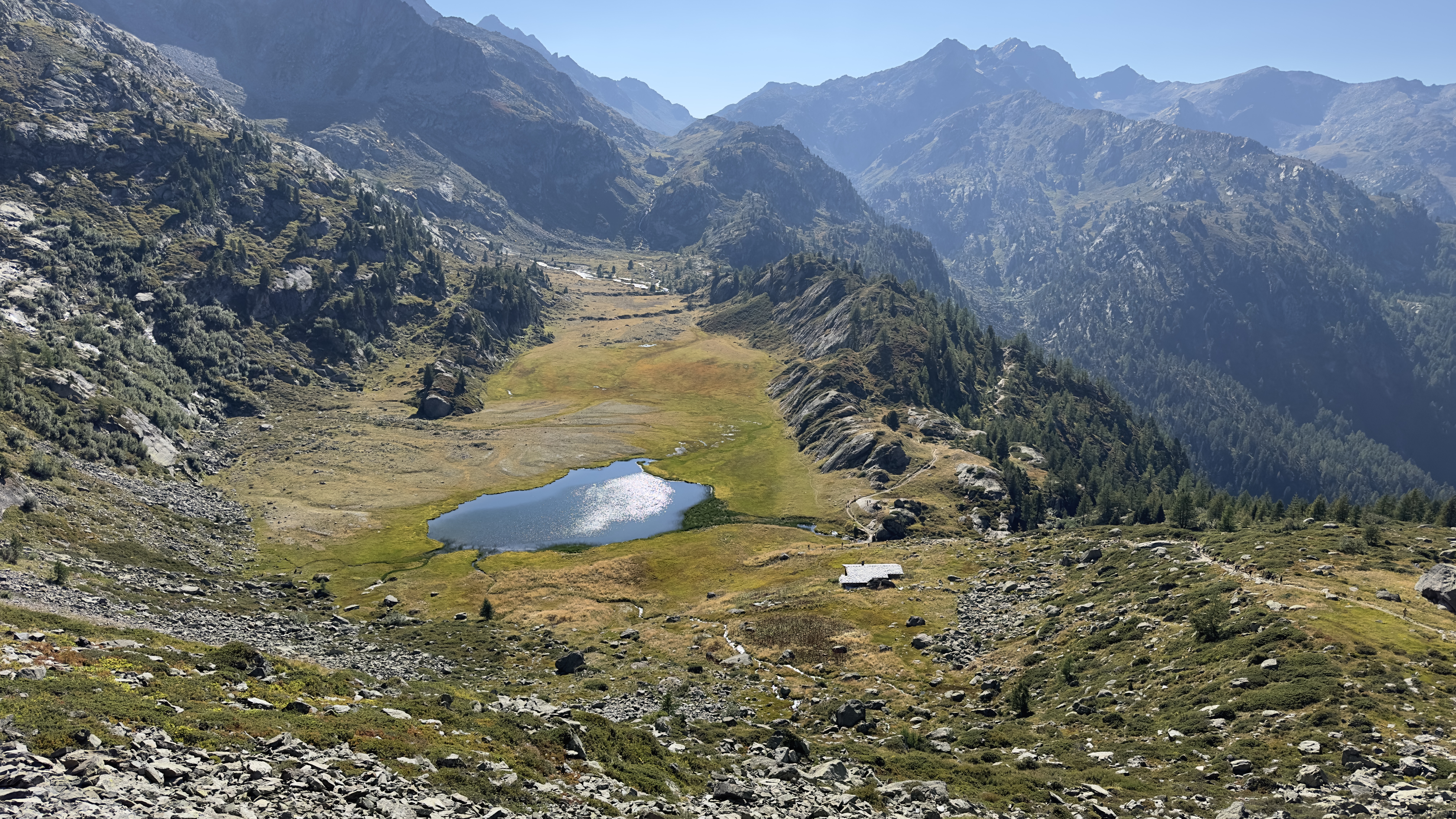





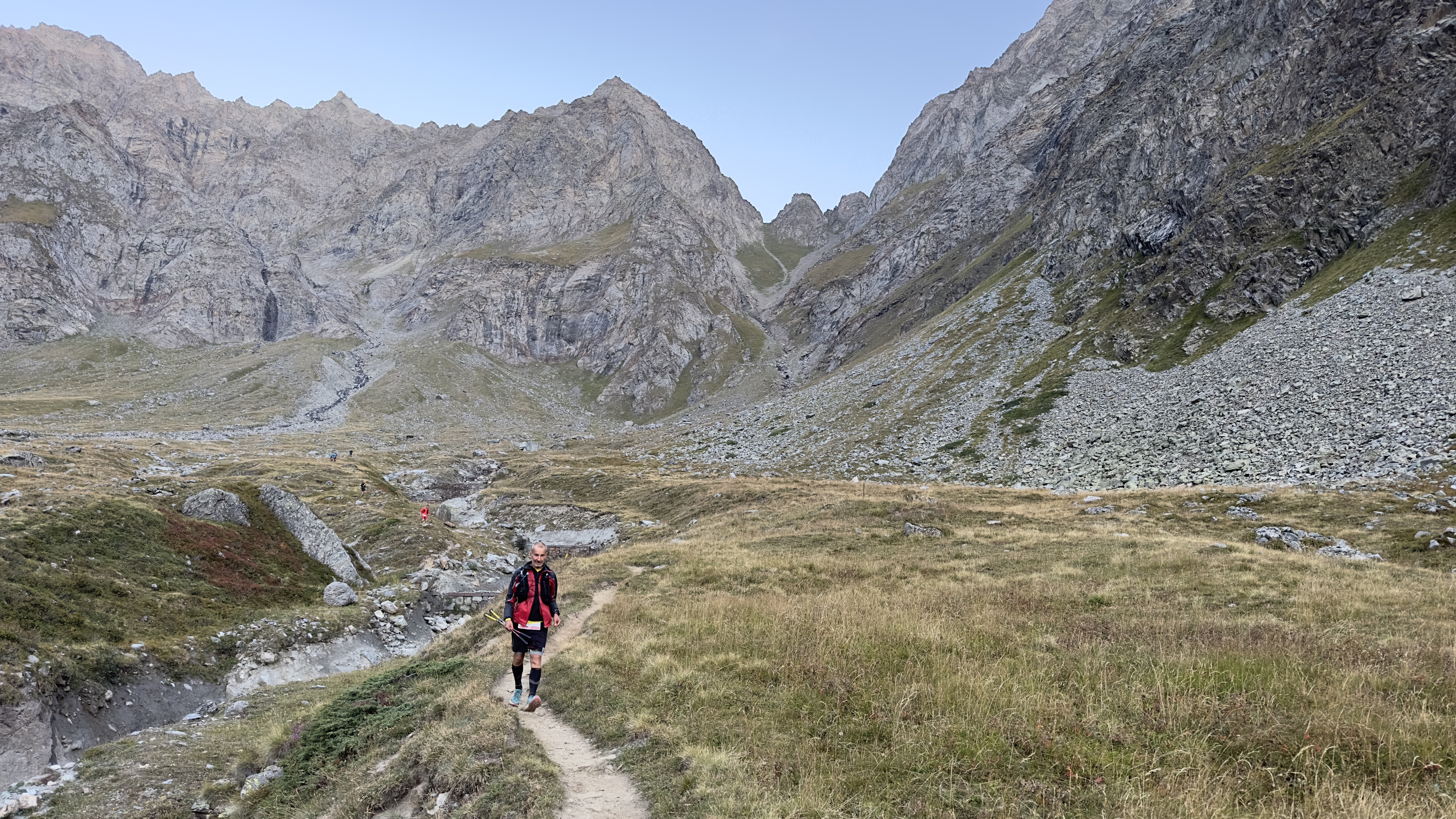







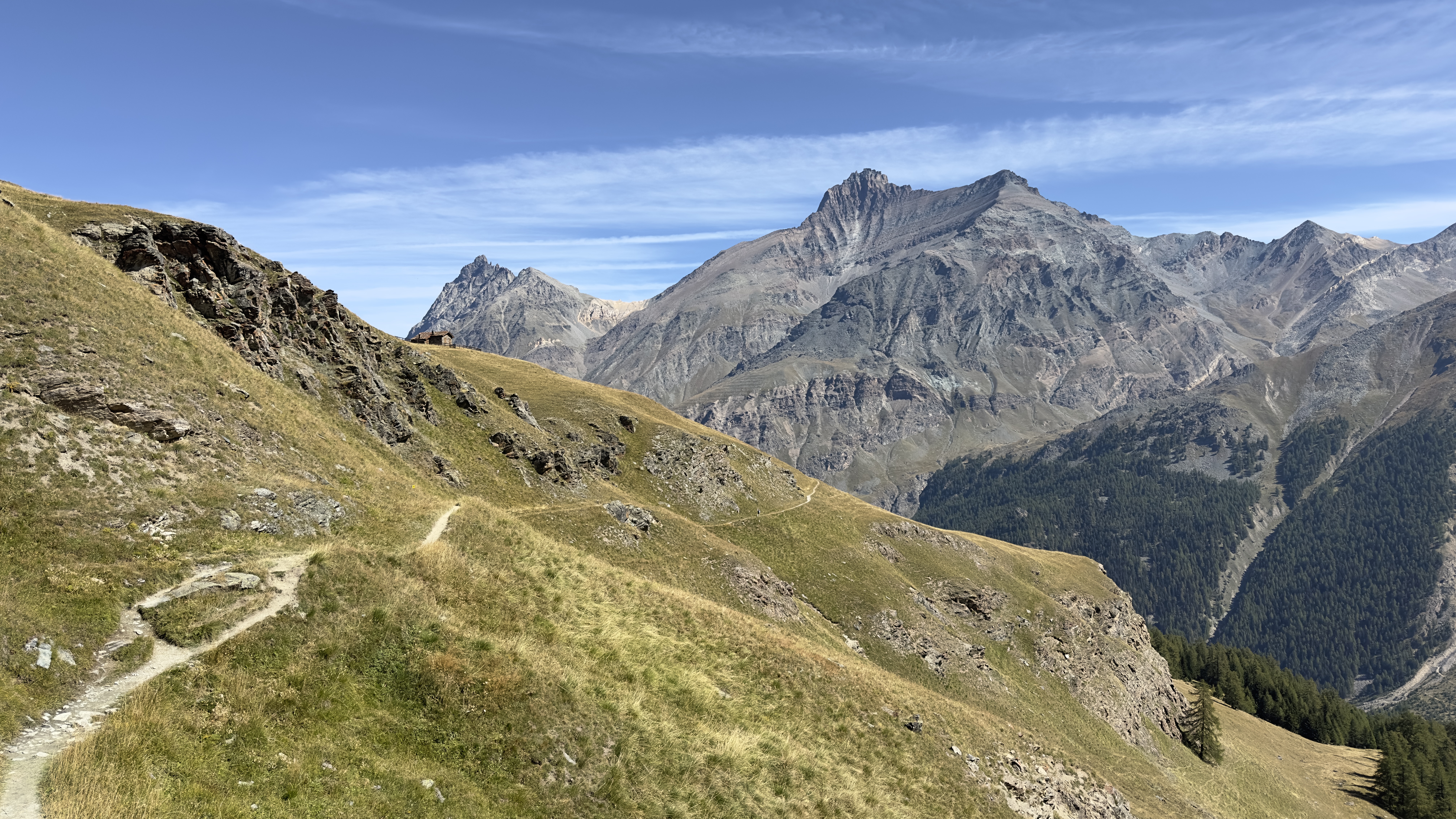



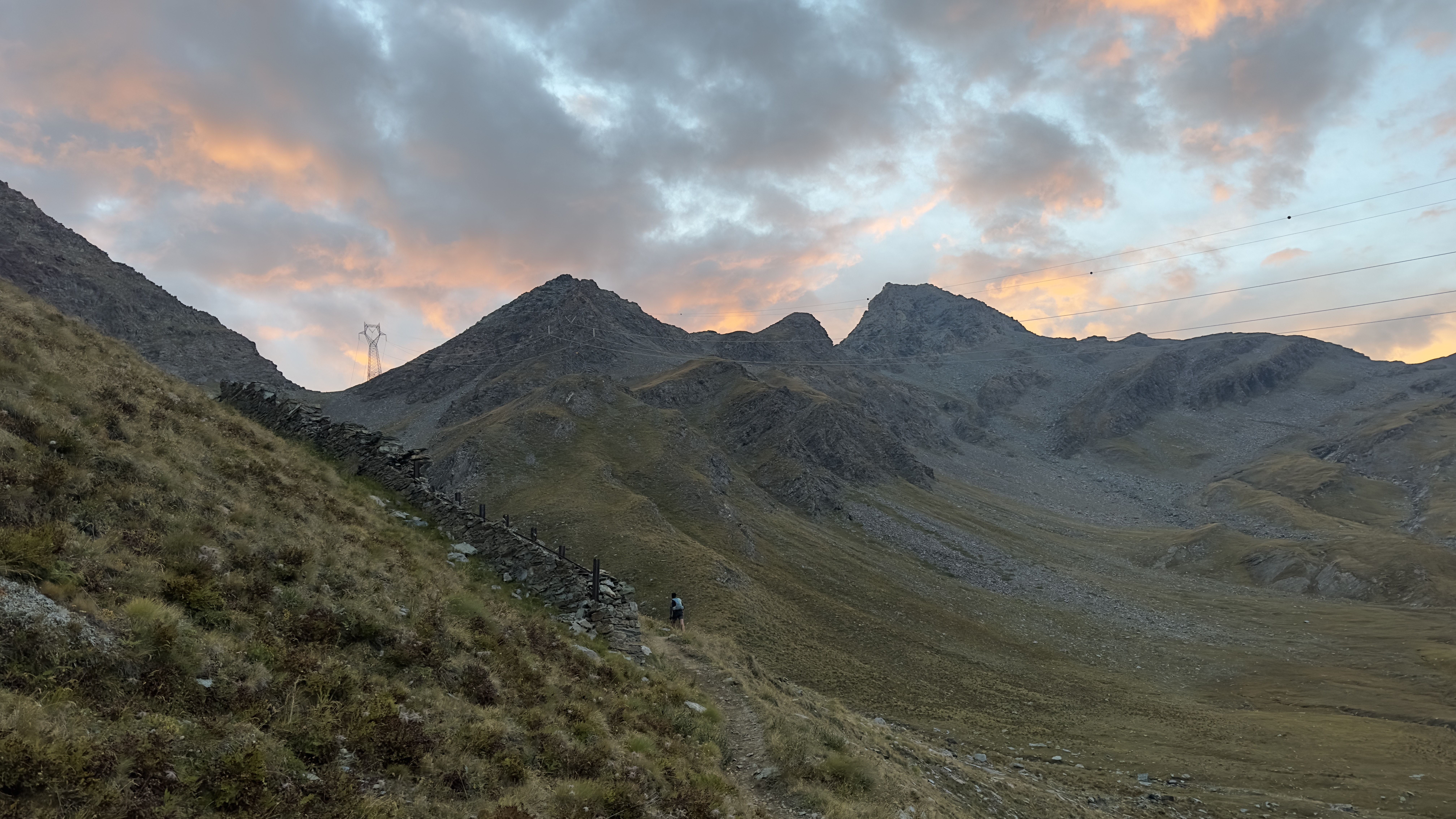


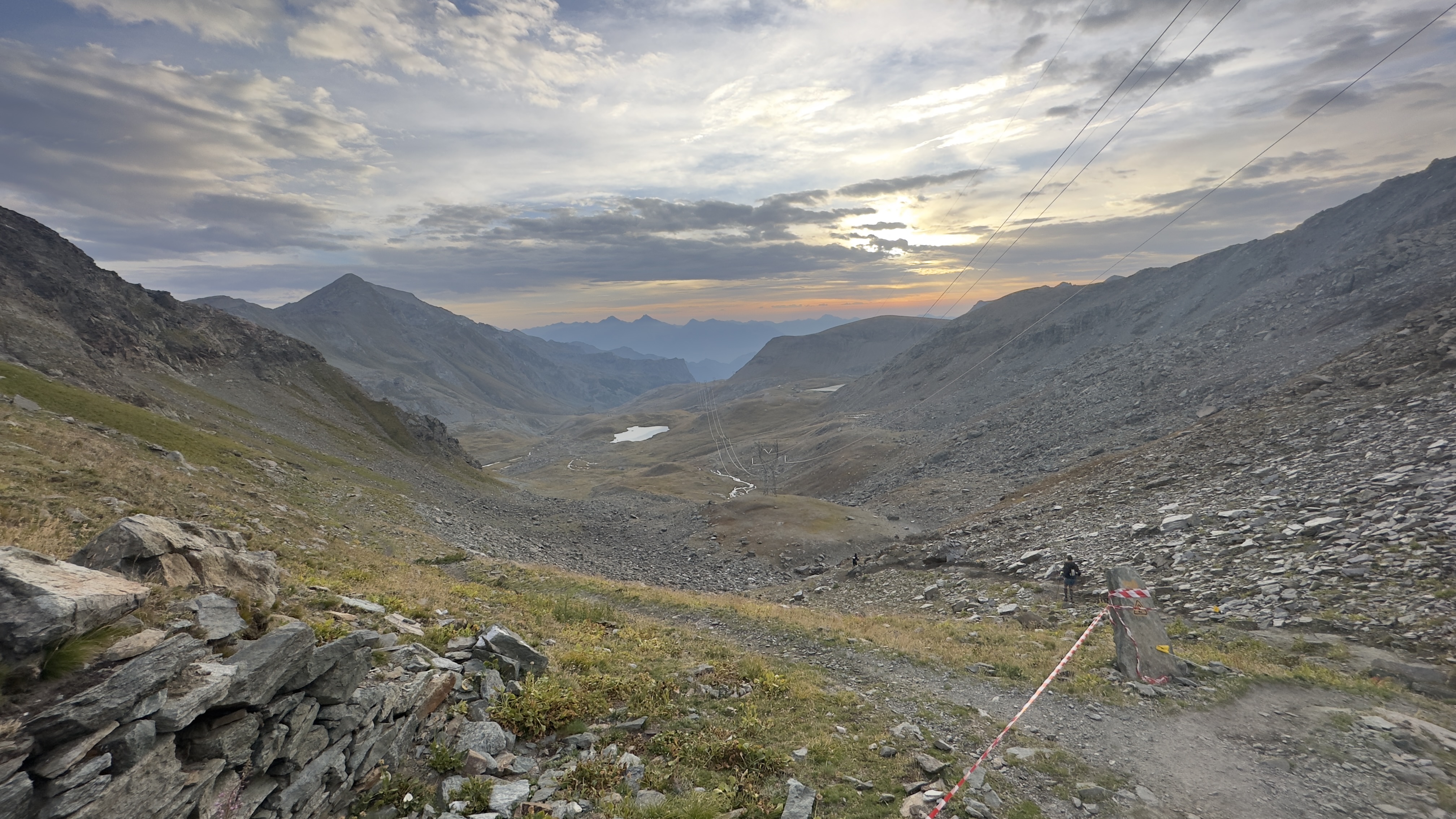



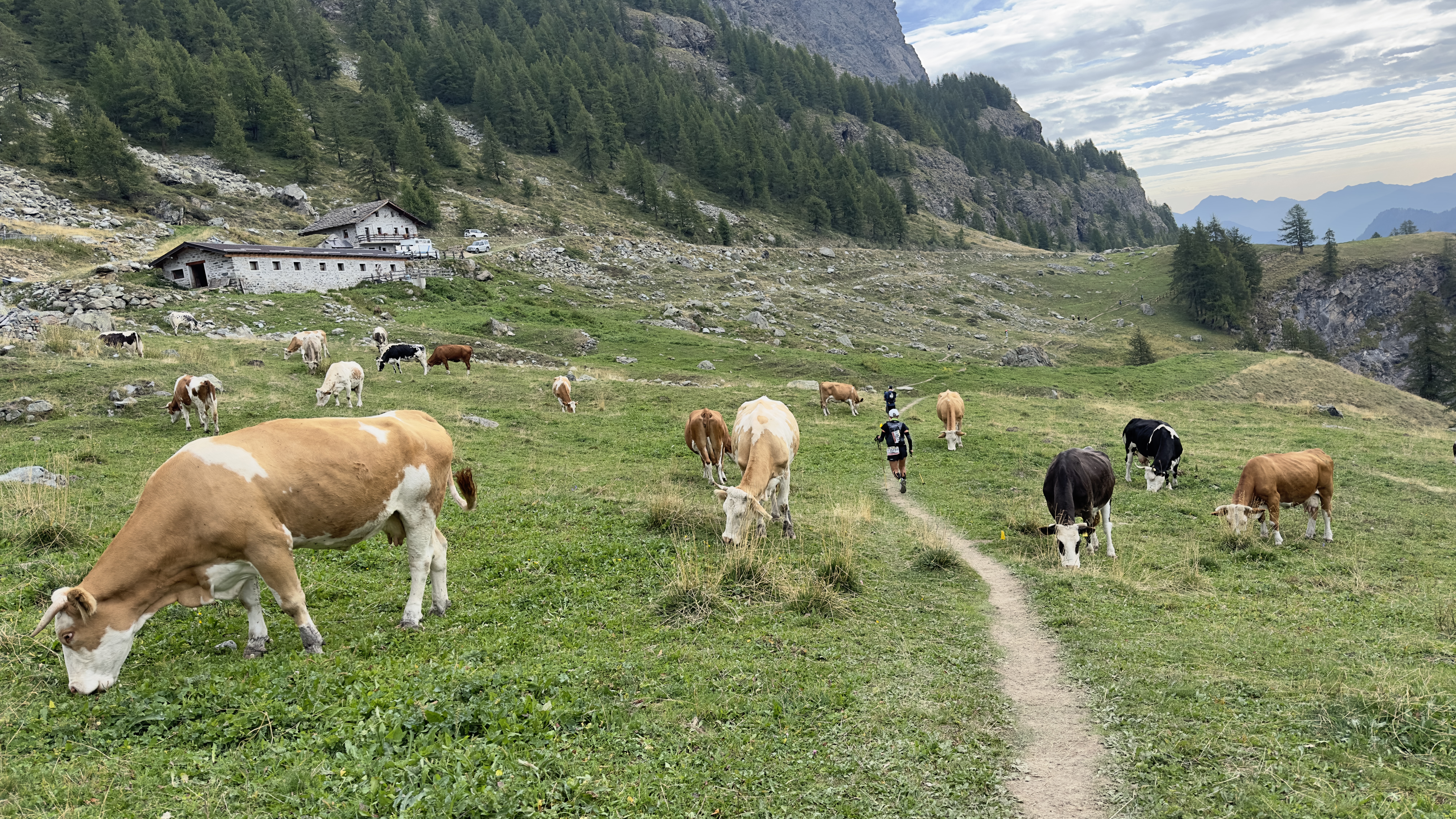









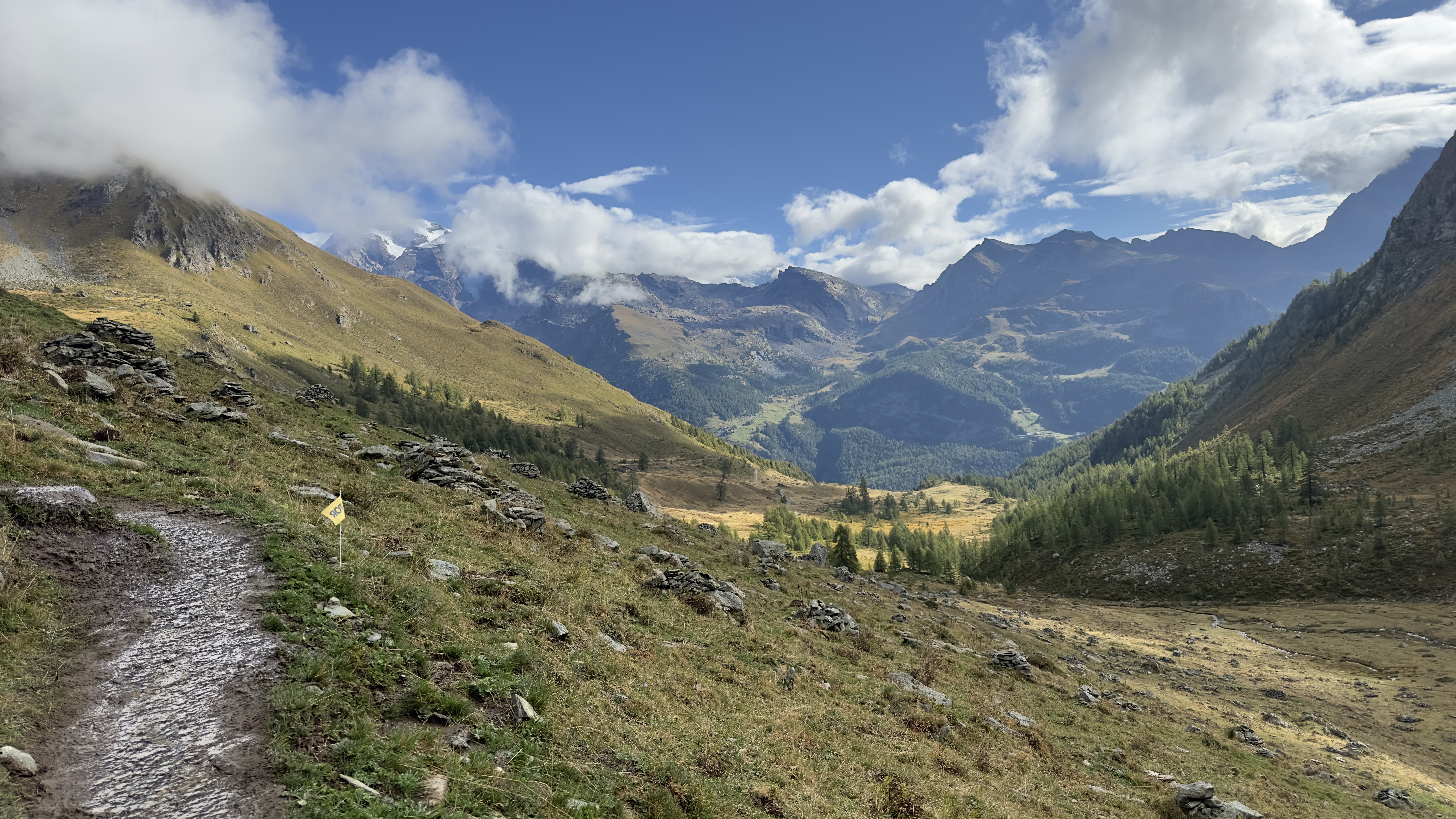























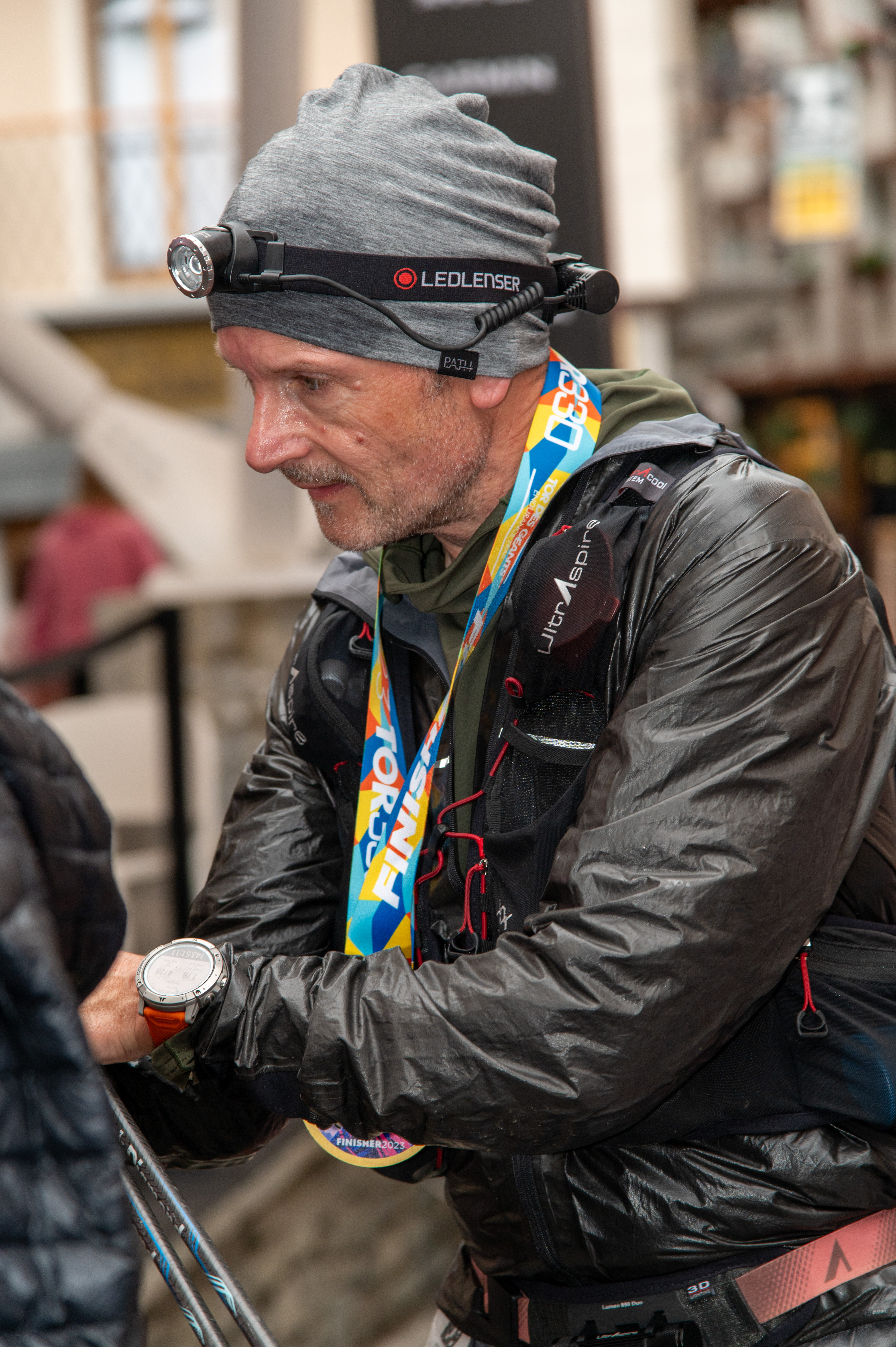







0 $type={blogger}:
Post a Comment